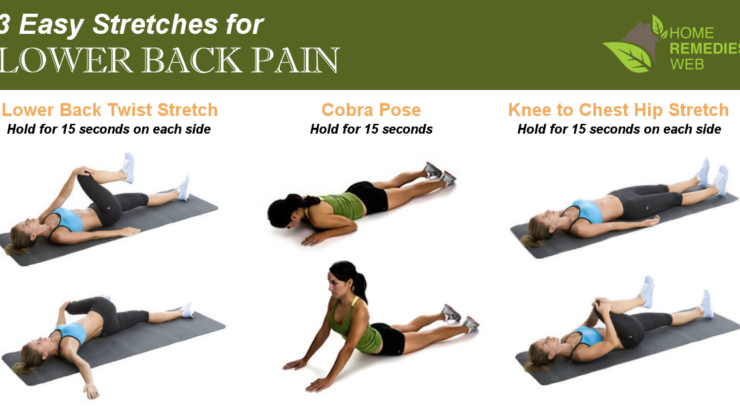
How to cure gum disease without a dentist – Gum disease is a common problem that can lead to serious health issues if left untreated. But what if you don’t have access to a dentist? Don’t worry, there are plenty of ways to cure gum disease without professional help.
Here’s everything you need to know.
From natural remedies to home care techniques, nutritional considerations to lifestyle modifications, and even alternative therapies, this guide covers all the bases for curing gum disease without a dentist. Let’s dive in and explore how you can achieve a healthy smile on your own terms.
Natural Remedies for Gum Disease
Gum disease, also known as periodontal disease, is a common condition that affects the gums and supporting structures of the teeth. While traditional treatments typically involve dental procedures, there are also several natural remedies that may help alleviate symptoms and promote oral health.
It’s important to note that these natural remedies are not intended to replace professional dental care and should be used in conjunction with regular checkups and cleanings. If you experience any symptoms of gum disease, such as bleeding gums, swelling, or pain, it’s crucial to consult a dentist for proper diagnosis and treatment.
Saltwater Rinses
Saltwater rinses are a simple and effective way to reduce inflammation and kill bacteria in the mouth. Saltwater helps draw out fluids from the gums, reducing swelling and pain. It also creates an alkaline environment that inhibits the growth of harmful bacteria.
To make a saltwater rinse, dissolve 1/2 teaspoon of salt in 8 ounces of warm water. Rinse your mouth with the solution for 30 seconds, twice a day.
Tea Tree Oil
Tea tree oil is a natural antiseptic and antibacterial agent that has been shown to be effective in reducing gum inflammation and killing bacteria. It also promotes healing and reduces pain.
To use tea tree oil for gum disease, mix a few drops of the oil with a carrier oil, such as coconut oil or olive oil. Apply the mixture to the affected area and leave it on for 10-15 minutes before rinsing your mouth.
Baking Soda, How to cure gum disease without a dentist
Baking soda is a mild abrasive that can help remove plaque and bacteria from the teeth and gums. It also neutralizes acids in the mouth, creating an alkaline environment that inhibits bacterial growth.
To use baking soda for gum disease, make a paste by mixing 1 teaspoon of baking soda with a little water. Apply the paste to your toothbrush and brush your teeth gently for 2 minutes. Rinse your mouth thoroughly after brushing.
Home Care Techniques
Maintaining a healthy oral hygiene routine is crucial for preventing and managing gum disease. Here are some effective home care practices:
Brushing and Flossing:
- Brush your teeth twice daily with a soft-bristled toothbrush and fluoride toothpaste.
- Use a gentle circular motion and brush for at least two minutes each time.
- Floss at least once a day to remove plaque and food particles between teeth.
Regular Dental Checkups and Cleanings:
Regular dental checkups and professional cleanings are essential for maintaining gum health. During these appointments, your dentist can:
- Examine your gums for signs of disease.
- Remove plaque and tartar that brushing and flossing can’t reach.
- Provide guidance on proper oral hygiene techniques.
Early Signs of Gum Disease:
Early signs of gum disease may include:
- Red, swollen, or bleeding gums.
- Receding gums.
- Pus between teeth and gums.
- Persistent bad breath.
If you experience any of these symptoms, it’s important to seek professional attention promptly.
Nutritional Considerations: How To Cure Gum Disease Without A Dentist
Nutrition plays a vital role in maintaining gum health. A balanced diet rich in specific vitamins, minerals, and antioxidants can support gum tissue regeneration, reduce inflammation, and prevent gum disease.
Essential Nutrients for Gum Health
- Vitamin C:Essential for collagen production, a protein that strengthens gum tissue.
- Vitamin A:Supports the immune system and helps repair damaged gum tissue.
- Vitamin E:An antioxidant that protects gum tissue from free radical damage.
- Vitamin K:Involved in blood clotting, essential for wound healing in the gums.
- Calcium:Strengthens bones and teeth, indirectly supporting gum health.
- Iron:Necessary for red blood cell production, which carry oxygen to the gums.
- Zinc:Boosts the immune system and helps fight gum infections.
- Coenzyme Q10:An antioxidant that protects gum tissue from inflammation.
Foods Rich in Beneficial Nutrients
Incorporate foods rich in these nutrients into your diet to promote gum health:
- Citrus fruits:Oranges, grapefruits, and lemons are excellent sources of vitamin C.
- Leafy green vegetables:Spinach, kale, and broccoli are rich in vitamins A, C, and K.
- Nuts and seeds:Almonds, walnuts, and chia seeds provide vitamin E and zinc.
- Dairy products:Milk, yogurt, and cheese are good sources of calcium and vitamin D.
- Red meat:Contains iron and vitamin B12, which supports red blood cell production.
- Fish:Salmon, tuna, and mackerel are rich in omega-3 fatty acids, which have anti-inflammatory properties.
Foods to Avoid for Gum Health
Certain foods and beverages can contribute to gum disease:
- Sugary foods:Bacteria feed on sugar, producing acids that damage gum tissue.
- Acidic foods:Citrus fruits, vinegar, and tomatoes can erode tooth enamel and weaken gums.
- Sticky foods:Caramel, toffee, and dried fruits can get stuck in teeth and provide a breeding ground for bacteria.
- Alcoholic beverages:Alcohol can dehydrate the gums and make them more susceptible to infection.
- Tobacco products:Smoking and chewing tobacco contain chemicals that damage gum tissue and weaken the immune system.
By following these dietary recommendations, you can support gum health and reduce the risk of gum disease.
Lifestyle Modifications

Lifestyle choices can significantly influence gum health. Understanding the impact of certain habits and taking proactive measures can help prevent and manage gum disease.
Smoking, stress, and specific medications are known to contribute to gum disease. Let’s explore these factors and discuss how to mitigate their effects.
Smoking
- Smoking damages the immune system, making it harder for the body to fight off gum infections.
- Nicotine constricts blood vessels, reducing blood flow to the gums, which can lead to tissue damage.
- Tar and other chemicals in cigarettes can irritate the gums, causing inflammation and bleeding.
Quitting smoking is crucial for gum health. Consider seeking support from a healthcare professional or joining a smoking cessation program.
Stress
- Stress can weaken the immune system, making the body more susceptible to gum infections.
- Stress can also lead to poor oral hygiene practices, such as skipping brushing or flossing.
Managing stress through techniques like exercise, yoga, or meditation can improve overall health and support gum health.
Medications
- Certain medications, such as steroids and some chemotherapy drugs, can suppress the immune system, increasing the risk of gum disease.
- Other medications, like oral contraceptives, can cause gum tissue overgrowth.
If you are concerned about the potential impact of medications on your gum health, discuss it with your healthcare provider.
Alternative Therapies

In addition to conventional treatments, alternative therapies may offer complementary benefits for gum disease. These therapies aim to support oral health, reduce inflammation, and promote gum healing. However, it’s crucial to consult a healthcare professional before using alternative therapies, as some may interact with medications or have potential side effects.
Acupuncture
Acupuncture involves inserting thin needles into specific points on the body. Some studies suggest that acupuncture may reduce inflammation and pain associated with gum disease. However, more research is needed to confirm its effectiveness.
Herbal Remedies
Certain herbal remedies, such as green tea extract, tea tree oil, and turmeric, have antibacterial and anti-inflammatory properties that may benefit gum health. Green tea extract contains catechins, which have been shown to inhibit the growth of bacteria that cause gum disease.
Tea tree oil has antibacterial and antifungal properties, while turmeric contains curcumin, a potent anti-inflammatory compound.
Ozone Therapy
Ozone therapy involves administering ozone gas into the mouth. Ozone has antimicrobial properties that may help reduce bacteria and inflammation in the gums. However, ozone therapy is still considered experimental, and more research is needed to determine its long-term effects and safety.
Gum disease can be a pain in the gums, but it doesn’t have to be. There are plenty of ways to cure gum disease without a dentist, and one of the best is to use Kings Mecconline Kings Mecconline . Kings Mecconline is a natural supplement that has been shown to be effective in reducing gum inflammation and bleeding.
It’s also gentle on your teeth and gums, so you can use it without worry. If you’re looking for a way to cure gum disease without a dentist, Kings Mecconline is a great option.
Epilogue

Curing gum disease without a dentist is possible with the right knowledge and dedication. By following the tips and advice Artikeld in this guide, you can effectively manage your gum health and prevent further complications. Remember, maintaining good oral hygiene is crucial for overall well-being.
So, take control of your gum health today and enjoy a healthier, more confident smile.
Commonly Asked Questions
Can I cure gum disease without seeing a dentist?
Yes, it’s possible to improve gum health at home by practicing good oral hygiene, using natural remedies, and making lifestyle changes.
What are some effective natural remedies for gum disease?
Saltwater rinses, tea tree oil, baking soda, and turmeric are all known for their antibacterial and anti-inflammatory properties that can help alleviate gum disease symptoms.
How can I prevent gum disease at home?
Brush your teeth twice a day, floss regularly, and use an antiseptic mouthwash to maintain good oral hygiene. Regular dental checkups and professional cleanings are also essential for preventing gum disease.





